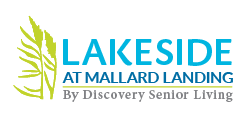Imagine the joy of expressing yourself through music, regardless of your age. Learning piano as a senior offers not just a delightful new skill but also a host of benefits for your mind and body. Whether you’re picking up the piano for the first time or returning to it after many years, this guide will help you navigate the rewarding journey of learning piano in your golden years.
Benefits of Learning Piano in the Golden Years
- Boosts Cognitive Function: Playing the piano is a fantastic way to keep your mind sharp. The coordination required to read music and play keys stimulates brain activity, enhancing memory and cognitive abilities. Studies have shown that seniors who engage in musical activities often experience slower cognitive decline.
- Enhances Emotional Well-being: Music has a profound impact on emotional health. Learning the piano can be a therapeutic outlet, allowing you to express your feelings and reduce stress. The sense of accomplishment from mastering a new piece can also boost self-esteem and happiness.
- Improves Physical Coordination: While it might not seem physically demanding, playing the piano helps improve hand-eye coordination and fine motor skills. Regular practice can lead to increased dexterity, which is beneficial for other daily activities as well.
- Encourages Social Interaction: Joining a music class or group can provide a wonderful opportunity to meet new people. Sharing your progress and experiences with fellow learners can create a supportive community and enrich your social life.
Tips for Getting Started
- Choose the Right Instrument: Selecting the right piano is important. While an acoustic piano offers a rich sound, it might be impractical due to space or maintenance needs. A digital piano is a great alternative, offering various features and flexibility.
- Find a Suitable Learning Method: There are multiple ways to learn piano. Traditional lessons provide one-on-one instruction, while online courses offer flexibility and a wide range of resources. Choose a method that fits your learning style and schedule.
- Set Realistic Goals: It’s important to set achievable goals to keep yourself motivated. Start with simple pieces and gradually increase the complexity as you build your skills and confidence.
- Practice Regularly: Consistency is key to learning any new skill. Aim for regular practice sessions, even if they are short. The goal is to build a habit and gradually improve over time.
- Seek Support: Don’t hesitate to seek help if you encounter difficulties. Whether it’s asking for advice from a teacher or joining an online forum, there are many resources available to support your learning journey.
Overcoming Common Challenges
- Dealing with Physical Limitations: It’s natural to have concerns about physical limitations such as joint pain or reduced dexterity. Focus on exercises that can improve flexibility and consult a healthcare provider if you have specific health issues.
- Staying Motivated: It’s easy to get discouraged if progress seems slow. Keep a positive mindset and celebrate small victories along the way. Listening to your favorite pianists can also inspire you.
- Managing Time: Balancing piano practice with other commitments can be challenging. Integrate your practice into your daily routine, perhaps by dedicating a specific time each day to practice.
Cultivate Your Passions at Our Retirement Community
Learning piano as a senior is more than just picking up a new skill; it’s a journey that enhances mental agility, emotional well-being, and physical coordination. At our retirement community in Salisbury, MD, we offer a nurturing environment where you can explore your musical interests.
Join our vibrant community and enjoy access to professional piano lessons, a supportive network, and the resources you need to thrive. Contact us today to learn more about our senior living options and amenities. Start your journey to musical fulfillment now!







